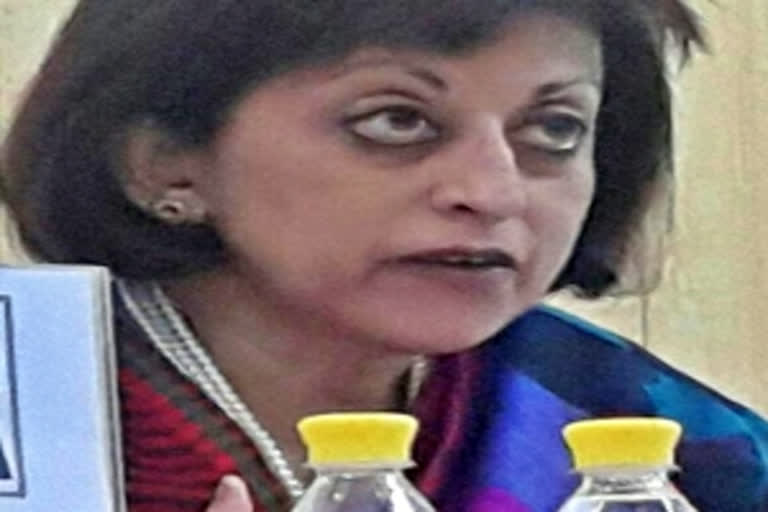New Delhi: Where on one hand India is dealing with the major military crisis on the border with China, the European Union is also looking to free itself from Chinese dependency.
Therefore, to tackle Beijing's unexpected rise in the region, India and the EU are ramping up efforts to strengthen their bilateral, strategic and trade partnership as a major push back to China and its growing hegemonic intentions and trajectory.
An expert opines that going ahead, the EU can be a crucial partner for India on several fronts.
Speaking to ETV Bharat, Bhaswati Mukherjee, a former Indian diplomat who headed the Indian Foreign Ministry’s department specialising in European Union Affairs said, “India has a multifaceted relationship with the European Union which includes both soft and hard power.
India has always wanted a greater element of hard power in the relationship with the EU because that is what we look at with our strategic partners particularly the United States".
Post-Brexit India-EU partnership
Because of our hostile neighbourhood and the fact that we have two nuclear-weapon states on the border-China, Pakistan, the European Union despite its best efforts before Brexit, was unable to transform itself into a Military alliance because of strong resistance by the United Kingdom, which saw efforts by the EU to militarize as a threat to NATO (North Atlantic Treaty Organisation) and the transatlantic partnership that Britain enjoyed at that time with the United States.
Now that Brexit is over, the expectation on the part of the major EU powers- particularly France and Germany and other major countries too is that they will be able to put forward a much better military force including Army and Navy, which would be inside and outside NATO, and the reason for that is because NATO has now turned hostile because of Turkey's membership.
That is precisely the reason why major EU countries including Germany and France have shown now great interest in joining the 'Quad' because they look at the Quad particularly the US and India as two countries that can check the militaristic aggressiveness of China.
Also Read:Russian FM on EU multilateralism, G7 and US
On being asked if any progress can be expected on FTA or Bilateral Trade and Investment Agreement (BTIA) and how significant is the Indo-EU bilateral trade relationship is, Mukherjee said, “The negotiations have been stuck for a long time. The negotiations had reached a stage at one point when India and the EU were ready to sign, but unfortunately what happened was the meltdown of the banks in the US, followed by the Eurozone crisis. So the EU closed its walls and became protectionist, they were not in a position to make the necessary concession to India to sign a BTIA. After that when the EU came out of the Eurozone crisis, things changed and the kind of concession that we were prepared to give at that time, were no longer possible, so we had to re-negotiate the BTIA".
“In the meantime, the UK which in many ways has an economy quite similar to India-UK is the 6th largest economy and India is going to overtake very soon, were against any concession to be made by the EU because the UK feared that this would impact bilaterally on their economy. Now that the UK has left the EU, the negotiators of both India and the EU are much more confident that perhaps, a limited agreement would be possible. Not such an extensive BTIA because one of the problems with the BTIA was not just the trade part but the investment part too. Some of these issues need to be resolved between both sides. But certainly, a limited trade agreement in specific sectors with some concession given by the EU, considering that India is nowhere near the EU as far as economic might is a concern, seems to be much more hopeful now pre-Brexit”, ambassador Mukherjee pointed out.
Also Read:EU weighs troubled Russia ties, fresh sanctions
Having said that, over the last few months, India and few member states of the European Union have been conducting meetings virtually to discuss in length the entire gamut of enhancing cooperation.
